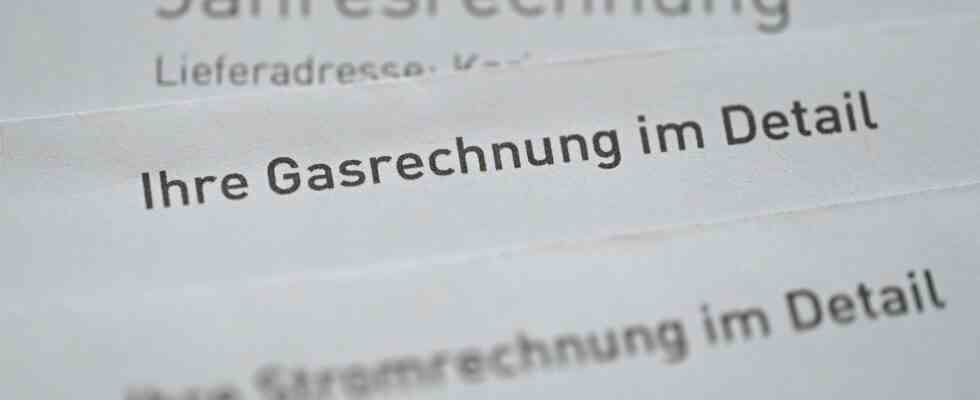Status: 11/18/2022 8:57 a.m
Actually, the cabinet wanted to bring the price brakes for gas and electricity on the way today. But the legislative plans are more complicated than expected. What questions are open – and why is there a lack of time?
If you step on the brakes, you want to feel the effect, and as soon as possible. What is the case with driving – this should also apply to the cost brake for electricity and gas. “People and companies are very concerned about the high energy prices – and that’s why we have to do something,” said Federal Chancellor Olaf Scholz.
The first is the lump sum payment of 300 euros for students and pensioners. In addition, the federal government wants to take over the monthly bill for the gas consumption of households and companies. This is a mammoth task, because the government has to determine the annual consumption of more than 20 million private and several thousand industrial customers and then divide this by twelve.
Unresolved questions about the price brake
It gets really complicated with the permanent price brake for electricity and gas in the new year. “There are technical issues that need to be resolved,” says Finance Minister Christian Lindner. And they have it all: How high is the basic consumption for which the federal government subsidizes the price? How can the cash flows between the state, the network operators and the end customers be organised?
It is currently planned that the gas price for private households will be capped at twelve cents per kilowatt hour – but only for 80 percent of consumption. For the last 20 percent, the supplier should bill the current gas price. For industrial customers, the cap price should be seven cents per kilowatt hour. This subsidized price then applies to 70 percent of regular consumption.
The gas price brake should cost the state more than 50 billion euros in the planned period up to spring 2024. The money will be paid from the “Economic Stabilization Fund”, for which the Bundestag recently approved credit authorizations – i.e. new debt – totaling 200 billion euros.
Prevent abuse of state aid
The Federal Ministry of Economics is now writing the draft law and wants to do everything right after the experience with the failed gas levy. “The municipal utilities, the distribution network operators, all have to have their data clear,” says Economics Minister Robert Habeck. In individual cases, it takes longer to discuss what is required by law and whether the plans could also be implemented in this form.
Habeck must rule out the possible abuse of state aid as far as possible. For example, companies should not be able to simply resell subsidized gas on the market. For DGB boss Yasmin Fahimi, it is important “that these economic aids are actually linked to securing jobs, securing the locations and our economic structure.”
The question of whether companies that benefit from subsidized energy prices can continue to pay bonuses to their management staff or regular dividends to their shareholders was also controversial. German industry tends to feel tamed by too many legal requirements. Above all, it relies on quick help with energy costs. “Companies cannot simply pass on the increased prices to the market,” says Employer President Rainer Dulger. Otherwise production relocations followed. But business models would also become unprofitable in the trades and in the service sector.
Habeck wants gas and electricity price brakes from January
The Union is putting pressure on the traffic light for the gas price brake. “One payment in December will hardly be enough to bring noticeable relief – for families, for example,” criticized Jens Spahn, deputy CDU chairman. “Bakeries and crafts also need structural relief much earlier – from January, February, March.”
Federal Minister of Economics Habeck wants to present the draft law on the gas and electricity price brake to the cabinet in November. Then the Bundestag could deal with it a few days later and then the Bundesrat. Habeck’s goal is “that we will be finished by mid-December and that all laws will take effect on January 1st.” That’s a good resolution for 2023.
Who is on the gas price brake?
Lothar Lenz, ARD Berlin, 11/17/2022 5:59 p.m

